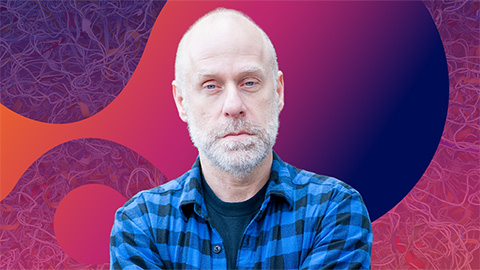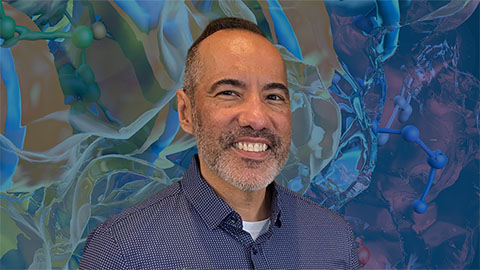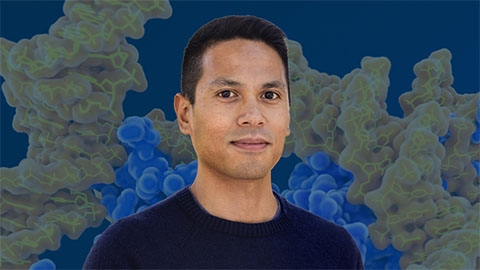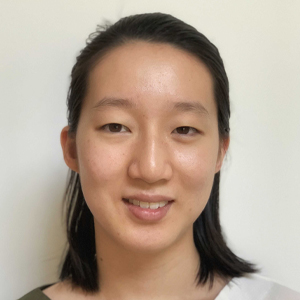
For Wolfson, every classroom is a laboratory
“Why do we need to know this?”
This inevitable question led Adele Wolfson to ponder what students reallymust know versus what is outdated or uninteresting. Asking herself, “Why am I asking my students to know this?” changed the way she taught.

“Little by little,” she said, “I stopped asking students to memorize anything.”
Figuring out how students learn became a major aspect of Wolfson’s work over her 32 years at Wellesley College. In addition to examining protein biochemistry and neuropeptidase functions, she became interested in pedagogy after realizing that lecturing is not as effective or inclusive as more active forms of learning. Taking advantage of the small class sizes at Wellesley, Wolfson began to test teaching methods such as small group work and inquiry-based labs.
“I really thought of every class as a laboratory,” she said, “and I think my students weren't always happy that I was doing that. But I was learning … things that could be passed along to others.”
Wolfson has also played a major role in the American Society for Biochemistry and Molecular Biology’s education efforts. With Peter Kennelly, a professor at Virginia Tech, she led the creation of the ASBMB accreditation program, which now includes more than 100 undergraduate biochemistry programs. Accreditation looks at the whole academic program — not just the number of faculty, but also opportunities for professional development. Not just scientific equipment, but also commitment to diversity and inclusivity, and, of course, whether students actively learn and apply their knowledge.
With Judy Voet, Wolfson co-organized the first satellite meeting on education at an ASBMB national conference, which was so popular they had to add parallel sessions at the last minute. The society now holds a biannual standalone education conference. Similarly, the women’s networking session Wolfson organized for many years became a place to raise important issues such as Title IX compliance.
In nominating Wolfson for the ASBMB Sustained Leadership Award, Kennelly wrote, “[She] leads with a graceful firmness that amplifies the power of her intellect and manifests her granite-like self-assurance.”
Wellesley professor Mala Radhakrishnan supported the nomination: “In addition to her active and explicit advocacy to catalyze increasingly diverse participation and success in her field, she also inspires women through simply being a role model herself.”
Wolfson still receives notes from former students, thanking her for encouraging them to see themselves as scientists. “And they're always wonderful,” she said. “It's just great to see that everything is built on everything else.”
Educating the educators
As Adele Wolfson’s research focus shifted to pedagogy, she decided to add some science to the art of teaching. She wanted to know how students brought knowledge, and how they forgot material when moving from one subject to another.
Wolfson looked at learning progressions to model the increasing depth of knowledge a student gains in a subject. With collaborators, she mapped “concept inventories,” tools to measure a student’s familiarity with a concept, to learning progressions within biochemistry and chemistry.
Concept inventories, which often take the form of multiple-choice assessments, can highlight misconceptions or gaps in understanding. In a recent paper co-authored with a student, Wolfson created a hypothetical learning progression in acid-base chemistry and then followed up with student interviews.
In her own classrooms, Wolfson has used case studies and active learning techniques to promote the transfer of knowledge between courses.
2024 ASBMB award winners
Phillips turns parasite’s metabolic weakness into hope for human health
Herbert Tabor Research Award: Margaret Phillips
Ando's pioneering journey: From physics to structural enzymology
Mildred Cohn Young Investigator Award: Nozomi Ando
Stoddard changes mentoring practices in academia
Ruth Kirschstein Diversity in Science Award: Shana Stoddard
Kennelly considers his fortune of three careers
William C. Rose Award for Exemplary Contributions to Education: Peter Kennelly
Balla leaves no phosphoinositide unturned
Avanti Award in Lipids: Tamas Balla
From virology to immunology, Wu focuses on structure
Bert & Natalie Vallee Award in Biomedical Science: Hao Wu
Stillman charts the path of genome replication
Earl And Thressa Stadtman Distinguished Scientist Award: Bruce Stillman
In failure, Simcox finds a way to learn
Walter A. Shaw Young Investigator in Lipid Research Award: Judith Simcox
Roos’ career pivot to maximize impact
Alice and C.C. Wang Award in Molecular Parasitology: David S. Roos
Enjoy reading ASBMB Today?
Become a member to receive the print edition four times a year and the digital edition monthly.
Learn moreGet the latest from ASBMB Today
Enter your email address, and we’ll send you a weekly email with recent articles, interviews and more.
Latest in People
People highlights or most popular articles

Mapping proteins, one side chain at a time
Roland Dunbrack Jr. will receive the ASBMB DeLano Award for Computational Biosciences at the ASBMB Annual Meeting, March 7–10, just outside of Washington, D.C.

2026 voter guide
Learn about the candidates running for Treasurer-elect, Councilor and Nominating Committee.

Meet the editor-in-chief of ASBMB’s new journal, IBMB
Benjamin Garcia will head ASBMB’s new journal, Insights in Biochemistry and Molecular Biology, which will launch in early 2026.

Exploring the link between lipids and longevity
Meng Wang will present her work on metabolism and aging at the ASBMB Annual Meeting, March 7-10, just outside of Washington, D.C.

Defining a ‘crucial gatekeeper’ of lipid metabolism
George Carman receives the Herbert Tabor Research Award at the ASBMB Annual Meeting, March 7–10, just outside of Washington, D.C.

Nuñez receives Vallee Scholar Award
He will receive $400,000 to support his research.

